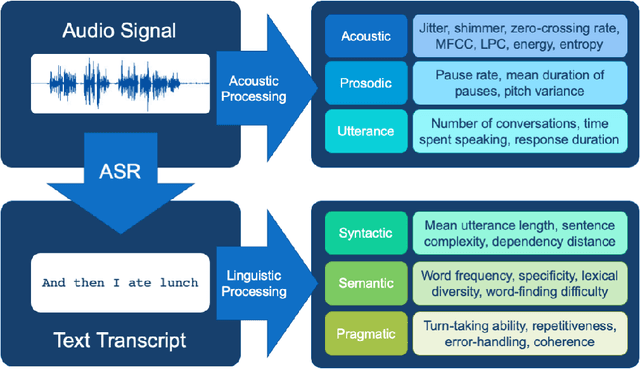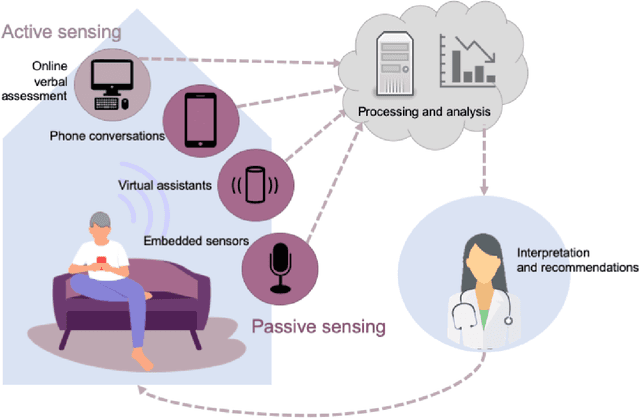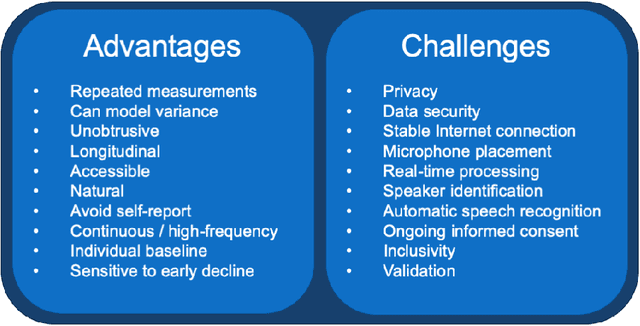Measuring Cognitive Status from Speech in a Smart Home Environment
Paper and Code
Oct 18, 2021


The population is aging, and becoming more tech-savvy. The United Nations predicts that by 2050, one in six people in the world will be over age 65 (up from one in 11 in 2019), and this increases to one in four in Europe and Northern America. Meanwhile, the proportion of American adults over 65 who own a smartphone has risen 24 percentage points from 2013-2017, and the majority have Internet in their homes. Smart devices and smart home technology have profound potential to transform how people age, their ability to live independently in later years, and their interactions with their circle of care. Cognitive health is a key component to independence and well-being in old age, and smart homes present many opportunities to measure cognitive status in a continuous, unobtrusive manner. In this article, we focus on speech as a measurement instrument for cognitive health. Existing methods of cognitive assessment suffer from a number of limitations that could be addressed through smart home speech sensing technologies. We begin with a brief tutorial on measuring cognitive status from speech, including some pointers to useful open-source software toolboxes for the interested reader. We then present an overview of the preliminary results from pilot studies on active and passive smart home speech sensing for the measurement of cognitive health, and conclude with some recommendations and challenge statements for the next wave of work in this area, to help overcome both technical and ethical barriers to success.
 Add to Chrome
Add to Chrome Add to Firefox
Add to Firefox Add to Edge
Add to Edge